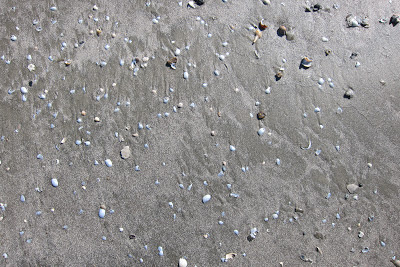The first
time I came to Galveston Island, in 1990, the Gulf deposited heaps of seashells at every ebbing tide. One day,
when the tide was unusually low, I gathered a basketful of sand dollars from
one of the offshore ridges.
The next
winter I returned to Galveston to await spring in Kansas. I collected hundreds
of beautiful shells and created temporary shell arrangements on the kitchen
countertop. For example, I found dozens of zigzag scallop shells ranging from
tiny to large, and arranged them by size.
Winter is
supposed to be the great seashell season on Galveston Island, but today I see
only bits and fragments of old shells, and few of those.
The broken zigzag scallop in the next photo is the only one I've seen this year. Its white companion may be a fragment of an ancient horse conch.
What has
happened? I don’t’ know the cause, but I can think of three possibilities. The
first possibility is Hurricane Katrina in 2005, which contaminated the Gulf with human
waste of every kind. The second possibility is the BP oil well failure in 2011, which
killed dolphins, sea turtles, fish and other marine life forms. The third is
the increasing acidity of Earth’s ocean waters, which dissolves the calciferous shells, causing the death of the creatures that live
in those shells.
I don’t
need to collect seashells. I have several boxes of them at home. The beach,
however, seems bare without them and I miss seeing them there.
Thankfully,
the sea grass is returning to the beach, an assurance that some life forms go
on.
Copyright
2013 by Shirley Domer




No comments:
Post a Comment